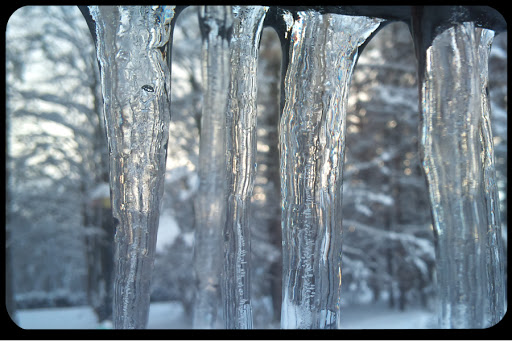Some weeks are just rough.
The semester is well underway, with the first round of exams looming ever closer. Campus is covered in a two-foot deep blanket of snow, and the giant, dirty mounds piled up on the side of the road are hardly shrinking in the sub-frozen temperatures. Crafting a summer research grant proposal to go to Hawaii for my upcoming senior thesis is proving much harder than I anticipated, and summer seems eons away.
So, in my cold, frazzled, and curmudgeonly state, procrastinating with Facebook seemed the only logical way to pretend that none of the aforementioned irritants existed. I was wrong. Sprinkled between memes and reposted news articles were photos of snowy landscapes from friends at schools across the country. Captions indicated that they were absolutely marveling in the supposed beauty of it all.
I literally have not seen grass in months, and I can barely remember the last time I wore something other than snow boots. How is it that these people find the Polar Vortex beautiful?
Struggling to focus in daily Mass the other evening, the campus chapel’s stained glass windows, the four of which depict saints in seasonal settings, caught my eye. Gazing between the panels from spring to winter and back again, I found myself thinking about Walt Whitman. In “Song of Myself,” he writes that grass may be “the handkerchief of the Lord, / A scented gift and remembrancer designedly dropt, / Bearing the owner's name someway in the corners, that we / may see and remark, and say Whose?”
Whitman, though decidedly not Catholic, seems to be pointing to God’s immanence. This led me to Job 37, in which God explains how He carefully and intentionally crafted everything in nature, and how we need to revere Him for all He has made.
Our daily routines, however, often obstruct our ability to observe natural splendors, thus reducing the reality of nature to a beauty of convenience. The mobility and demands of college life make it so easy to look with pure disgust upon the seemingly endless Midwestern winters—unless there is a prime photo op. We are forced to rush between heated buildings for every part of the day; rarely can one stay in a dorm or apartment for more than 24 straight hours, a far cry from our routines back home. Ancient radiators replace homey fireplaces, the warmth of laptops fill in for curling up with family pets, and microwavable macaroni and cheese substitutes for a hot meal.
But homesickness is not really the problem. Rather, we are trained from a young age to believe that comfort is beauty. Daily struggles with academic, social, and career stresses, can blind us to God’s presence in this awkwardly fluid and often painful stage of our “emerging adult” lives. Adding the inconvenience of winter—especially when the cold is more of a mild burden than a grave concern—breeds a poisonous antipathy towards nature.
As much as I would love to hole up in my warm apartment and denying the reality of winter’s beauty, as harsh as it is, is to deny my own place in creation. In both Job and Whitman, we see that God leaves traces of Himself in all he makes, be it grass or ice, and human beings are hardly an exception.
We are certainly limited in our capacity to acknowledge the profound meaning inherent in the world around us, and the exhausting preoccupations of college life only further hinder that ability. If we can train ourselves to more actively seek God’s signature in creation—even if it starts with Facebook photos of snow-kissed campuses—we will better understand ourselves as creatures made to love and worship.
Lilia Draime is a junior at a Catholic university in the United States, and her column, Living Christ on Campus, will appear every other Thursday. Aleteia has decided to keep Lilia’s institution anonymous so as to keep the focus on what she has to say about issues that impact all young students struggling to live their faith on college and university campuses, whether those institutions be Catholic or not.

